Rafforzare la capacità istituzionale delle autorità pubbliche e delle parti interessate e un'amministrazione pubblica efficiente
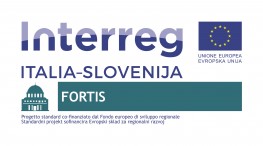
Rafforzare la capacità istituzionale e la "governance" transfrontaliera
Il progetto FORTIS ha inteso promuovere la cooperazione istituzionale attraverso soluzioni innovative congiunte per la cittadinanza volte da un lato ha migliorato e promosso i servizi di traporto pubblico transfrontaliero a favore di una mobilità sostenibile e efficiente dall’altro ha favorito lo scambio di esperienze e l’armonizzazione delle procedure in materia di motorizzazione civile.
Una delle principali ragioni che limita il miglioramento e l’armonizzazione dei servizi e delle legislazioni nelle aree transfrontaliere è la carenza di cooperazione e dialogo istituzionale tra i principali portatori di interesse regionali. Come conseguenza di tale aspetto, i cittadini che risiedono in queste aree sperimentano quotidianamente difficoltà nell’accesso ai servizi pubblici e nella gestione delle proprie pratiche amministrative. A tal fine, il progetto FORTIS ha individuato soluzioni innovative che hanno facilitato la vita dei cittadini delle aree transfrontaliere e ha proposto il dialogo istituzionale in due traiettorie: il miglioramento dei sistemi di trasporto pubblico locale in un’ottica di integrazione transfrontaliera e la facilitazione della conoscenza e lo scambio di buone pratiche circa le pratiche amministrative relative alle differenti legislazioni in materia di motorizzazione civile. A seguito di una gap analysis sulle aree di intervento, specifiche azioni pilota hanno testato soluzioni sperimentali per migliorare i servizi e il dialogo istituzionale nell’area, consentendo la costituzione di uno stabile network di cooperazione istituzionale.
Il progetto FORTIS ha sviluppato in primo luogo un (1) piano d’azione per ottimizzare i collegamenti di trasporto pubblico nell’area transfrontaliera e promosso il dialogo istituzionale con lo scopo di facilitare la reciproca conoscenza delle procedure per la registrazione dei veicoli. E' seguita (2) la definizione e l’attuazione delle attività pilota, che sono servite per la valutazione delle soluzione innovative proposte. Le istituzioni coinvolte, assieme agli operatori chiave hanno potuto così sostenere la mobilità transfrontaliera attraverso un (3) protocollo d’intesa con lo scopo di estendere e mantenere le iniziative testate. D’altro canto le autorità competenti hanno acquistato (4) la conoscenza delle reciproche procedure relative alla motorizzazione civile, che sono state raccolte in un toolbox messo a disposizione della cittadinanza. Il network di cooperazione stabilito nell’ambito del progetto FORTIS è stato confermato e mantenuto anche oltre la durata del progetto grazie alla firma di (5) un ulteriore protocollo d’intesa.
Partner capofila
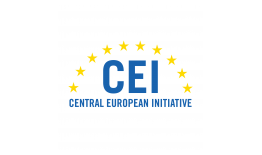
Partner progettuale n.1
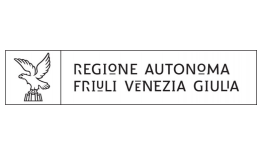
Partner progettuale n.2
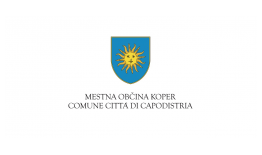
Partner progettuale n.3
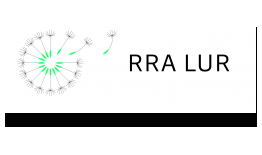
Partner progettuale n.4
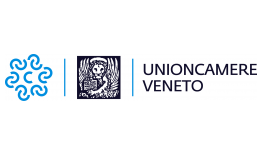
| sintesi del piano di comunicazione sintesi piano comunicazione FORTIS - IT - SI finale.pdf ( 516 byte, pubblicato il 23 Giugno, 2023 - 15:41 ) | |
| Borchure progetto versione IT brochure quadrata_ITA.pdf ( 421 byte, pubblicato il 23 Giugno, 2023 - 15:41 ) | |
| Pubblicazione finale pubblicazione finale_FORTIS.pdf ( 3 byte, pubblicato il 23 Giugno, 2023 - 15:41 ) | |
| Prima newsletter newsletter - ita.pdf ( 1 byte, pubblicato il 23 Giugno, 2023 - 15:41 ) | |
| Seconda newsletter newsletter n. 2 - it.pdf ( 826 byte, pubblicato il 23 Giugno, 2023 - 15:41 ) | |
| Terza newsletter newsletter 3 - ita.pdf ( 1 byte, pubblicato il 23 Giugno, 2023 - 15:41 ) | |
| Action Plan D.3.1.2.3_CB_Action_Plan_FINALISED_ITA.pdf ( 2 byte, pubblicato il 23 Giugno, 2023 - 15:41 ) | |
| Piano d’azione per promuovere il dialogo istituzionale D.3.1.2.6_FORTIS_FVG_ita.pdf ( 802 byte, pubblicato il 23 Giugno, 2023 - 15:41 ) | |
| Accordo per la promozione del trasporto pubblico in aree transfrontaliere D.3.3.2.3_MoU_Agreement for promoting public transport_IT_0.PDF ( 601 byte, pubblicato il 29 Giugno, 2023 - 14:26 ) | |
| Cooperation Network D.3.3.2.4 Cooperation network IT_0.PDF ( 601 byte, pubblicato il 29 Giugno, 2023 - 14:26 ) | |
| Protocollo d’intesa tra i partner di FORTIS D.3.3.2.5_MoU IT_0.PDF ( 664 byte, pubblicato il 29 Giugno, 2023 - 14:26 ) |
Principali obiettivi:
Promozione del dialogo istituzionale ed attività di coordinamento per:
Principali attività e risultati
strada, ferrovia e via mare
Coinvolgimento degli stakeholder e promozione > Promozione delle soluzioni congiunte e capitalizzazione.
Attività di verifica:
Conclusioni:
L’area transfrontaliera che comprende le estreme propaggini del nord-est italiano e il territorio sud-occidentale della Slovenia si caratterizza come una regione storicamente e geograficamente omogenea in cui, nel corso degli ultimi due decenni, i legami culturali ed economici si sono ulteriormente e costantemente rafforzati.
A fronte della graduale concretizzazione di un continuum socio-economico transnazionale, rimane però lontana l’integrazione e la connessione dei sistemi di trasporto pubblico locale operanti sui due versanti della frontiera. Ancora oggi, infatti, tanto i frontalieri che i turisti che vogliano spostarsi tra Trieste e Ljubljana con i mezzi pubblici non riescono a farlo agevolmente. Anche la connessione tra i due principali centri costieri, Koper e Trieste, rimane complessa, per non parlare della possibilità di muoversi tra i centri minori sparsi sui due lati del confine sull’altopiano carsico. Ciò evidentemente determina una sempre maggiore necessità, soprattutto per la popolazione residente ma anche per i viaggiatori, di ricorrere all’utilizzo del mezzo privato, determinando così un significativo impatto ambientale e rilevanti costi economici e sociali.
Il progetto è stato concepito come uno dispositivo pratico ed efficace, capace di promuovere soluzioni immediatamente applicative per facilitare la mobilità delle persone, come ad esempio l’estensione del servizio bus tra Koper e Trieste o la bigliettazione integrata tra ferrovia e trasporto locale sulla tratta Ljubljana – Trieste, come pure di incoraggiare forme di trasporto sostenibile attraverso la realizzazione di uno studio sulle potenzialità di una line marittima permanente che colleghi Koper con Muggia e Trieste.
D’altro canto, il progetto ha concentrato molto impegno e risorse qualificate sul rafforzamento delle relazioni istituzionali tra gli Enti e le autorità che in Friuli Venezia Giulia ed in Slovenia sono responsabili della pianificazione del territorio e della ideazione e gestione delle politiche di mobilità. FORTIS ha infatti sostenuto prontamente lo sforzo dei decisori di FVG e Slovenia di rilanciare, una volta superata l’estrema emergenza pandemica, un proficuo dialogo volto ad allineare le policies e orientato a trovare soluzioni pratiche e condivise alle problematiche della mobilità sostenibile in abito transfrontaliero. Ne sono un esempio particolarmente efficace le attività congiunte in materia di motorizzazione civile e di controllo del traffico pesante, che hanno visto una serie di sperimentazioni sul campo e lo scambio di buone pratiche, come pure le attività a sostegno della bigliettazione integrata che hanno permesso di veicolare ai tavoli di lavoro congiunti istituiti tra la regione FVG e la Repubblica di Slovenia la visione e le proposte dei portatori di interesse locali in merito alla progettazione e realizzazione del un biglietto integrato che colleghi Trieste e Lubiana offrendo servizi aggiuntivi ai viaggiatori.
Il partenariato del progetto FORTIS, consapevole delle sfide che ancora devono essere affrontate nel breve e nel medio termine è impegnato a sostenere gli attori principali ed i portatori di interesse nella definizione di politiche e soluzioni pratiche che possano favorire lo sviluppo territoriale attraverso una mobilità più efficiente, efficace e sostenibile a beneficio della popolazione dell’area transfrontaliera e dei viaggiatori che vorranno visitarla.